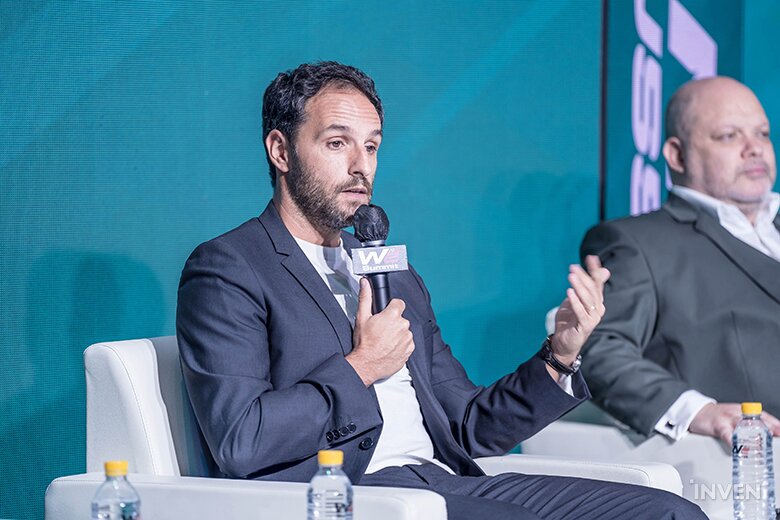The Olympics is one of the biggest sports festivals in the world that represents traditional sports. From the first event back in 1896, its history spans over 100 years, which makes the Olympic’s value and tradition solid.
However, there has been some change coming in the Olympics. Last year, in the 2021 Tokyo Olympics, they held the Olympic Virtual Series, which was an event based on virtual games. There were five events within the series — baseball, cycling, rowing, sailing, and motor racing. According to IESF, there were 1.2 million viewers for the last Olympic Virtual Series.
The Olympic movement is continuing to attempt to connect with esports. How much has it progressed? How will it go in the future? Inven spoke with Vincent Pereira, the head of virtual sports in the International Olympic Committee, and listened to the thoughts the Olympics have on esports.
2021 saw your inaugural virtual competition, the Olympic Virtual Series. Was it successful? How did the fans react?
The Olympic Virtual Series (OVS) was launched in summer 2021 and featured virtual competitions in sports such as baseball, cycling, rowing, sailing, and motor racing. It was a success, with more than 250,000 people participating across both the qualifying and finals events. The OVS reflects the mission we have – supporting the development of virtual sports. This was a good start for us, and we have ambitions to continue to do more in the coming years.
What are the future plans for the OVS or other IOC esports initiatives?
Following the success of the OVS last year, we are building on this by planning the first festival of virtual sports and gaming. It will take place next year and will showcase the best of virtual sports – hybrid and simulated sports games, plus esports that align with the Olympic values. It is about celebrating and exploring the best of virtual sports, across technology exhibitions, show matches, panel discussions, education sessions, etc. This is our focus for now.
Esports is a different concept from traditional sport, but there are still some things in common. What does the IOC plan to do?
We agree with you. Esports and sports are two distinct competitions, and it’s right to treat them as such, but there are, of course, some synergies. The IOC supports all different types of competition, and we believe exploring bringing together two of the best competitive communities – the Olympic Movement and esports – can potentially lead to exciting developments in global competition.
There are many areas where sports can support esports – for example, the Olympic Movement has tools and resources in areas such as competitor development. If there are things we can do to support this development, we’re happy to explore doing so.
Since traditional sports are mostly physical, some people don’t think that esports can ever become “real” sports. What is your opinion on this?
As I said, sports and esports are two distinct forms of competition; therefore, we don’t think it is necessary to try and compare them in this way. There are, of course, areas where the two meet, such as Zwift, where physical activity is combined with virtual technologies. It is this area of virtual sports that we are most interested in developing within the Olympic Movement.
There are people who think that traditional sports or the IOC are just using the esports scene for their own development. Do you have anything to say about this?
Supporting the development of virtual forms of sports, and connecting with the gaming community, are key areas of focus for us, laid out in the Olympic Agenda 2020+5. First, it’s about how we can bring together the Olympic Movement and the esports communities to explore and collaborate in the future. We believe there is potential for exciting developments for global competitions and creating new opportunities for players and fans. For us, it makes sense to keep up with the developments in how people compete, and it is also one of the ways we can keep connected to young people.
The Olympic Virtual Series featured some virtual sports, but what esports fans want to see is the major esports titles such as League of Legends at the Olympics. Do you think this will be possible?
For now, we are focusing on virtual and simulated sports competition. This is why we are promoting sports games that are linked to our International Federations (IFs). The partnership between the International Baseball Federation and Konami is a good example of this. Our mission is to support the growth of virtual sports within the Olympic Movement, so this is why we’ll create new opportunities for IFs, publishers, and fans to be involved in virtual sports and see how we can work together.
